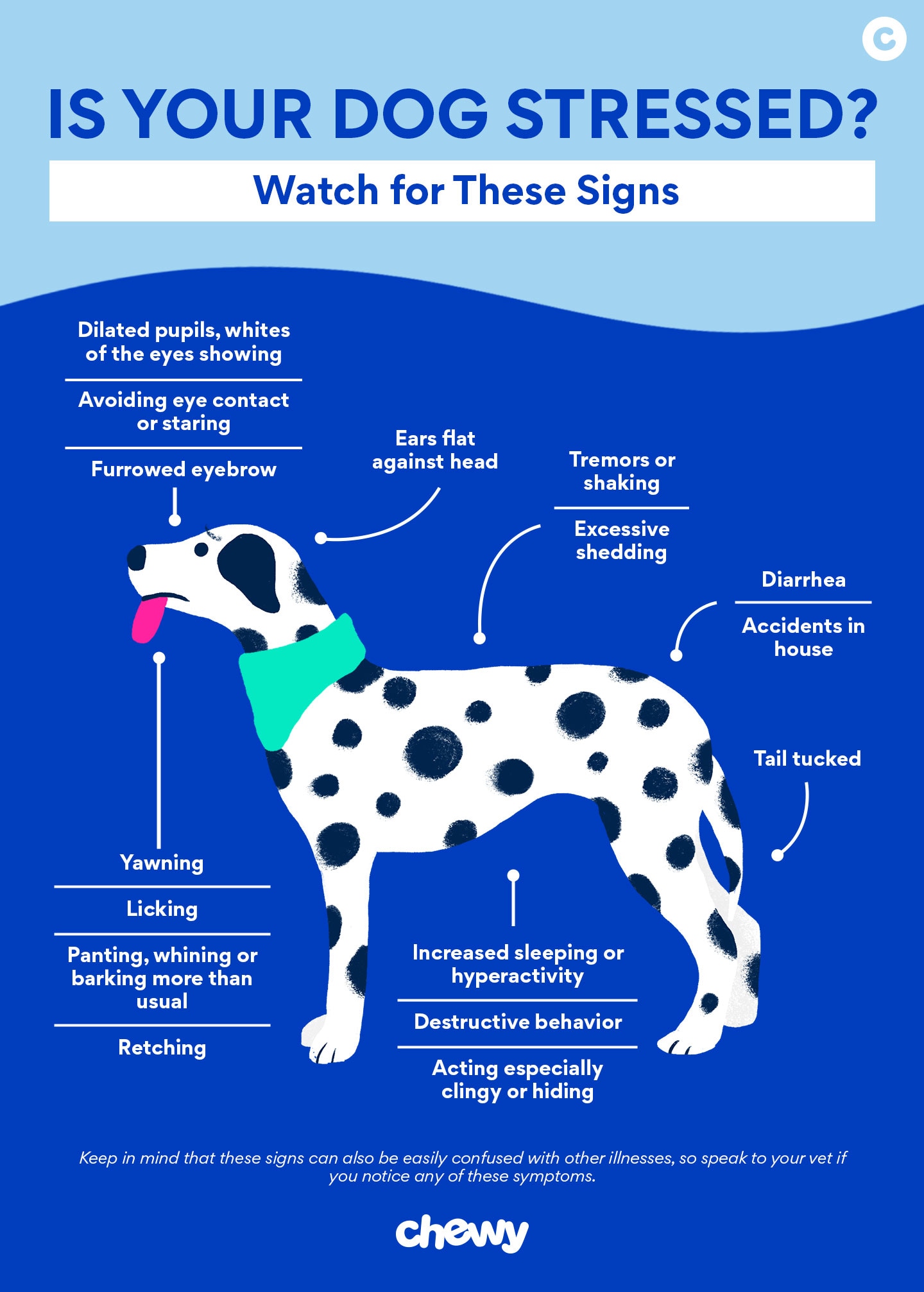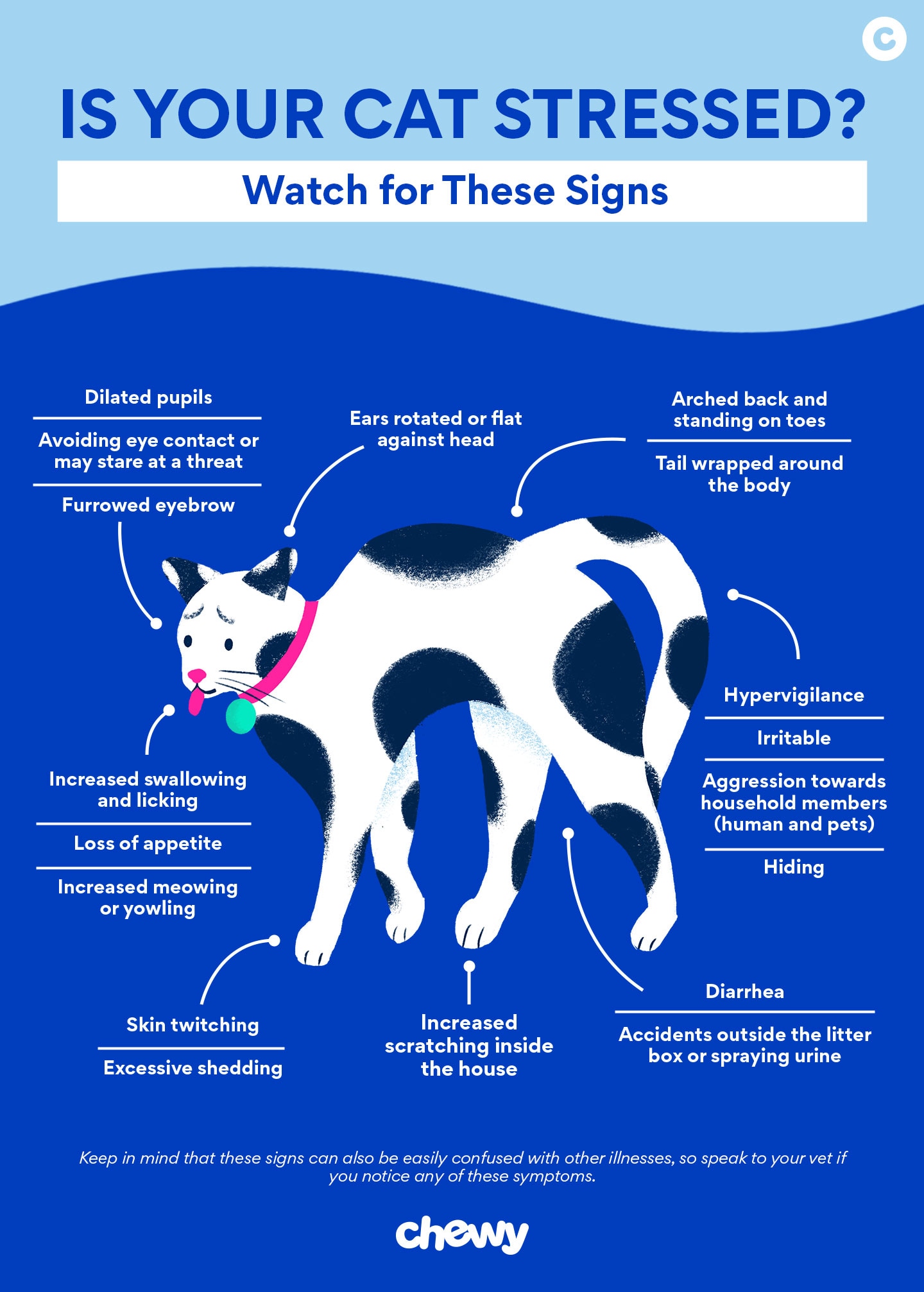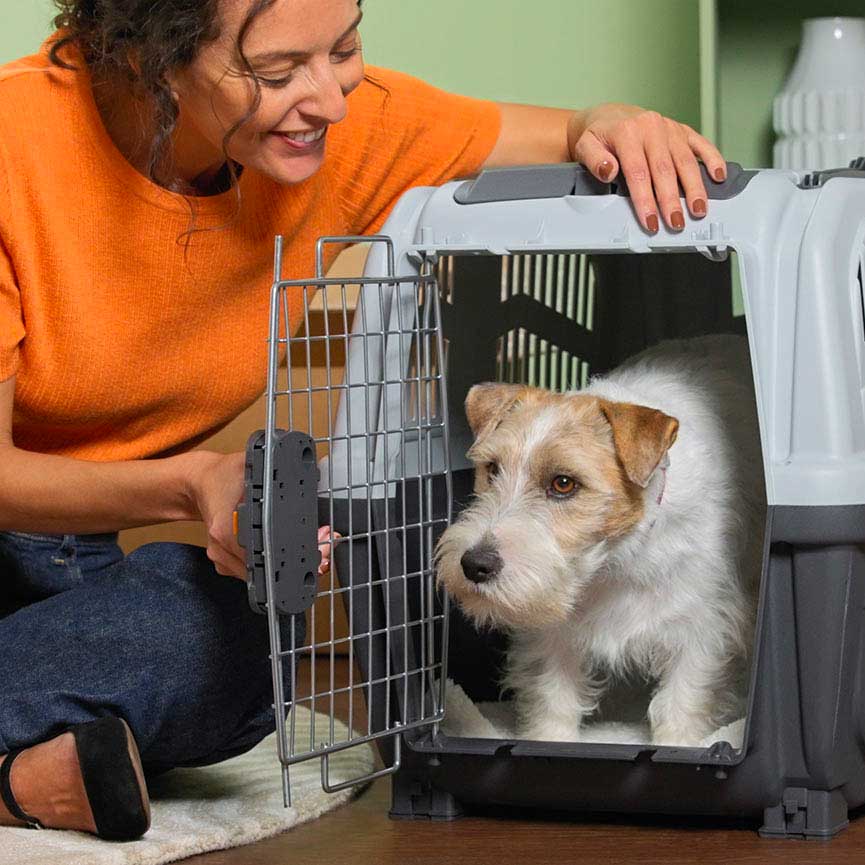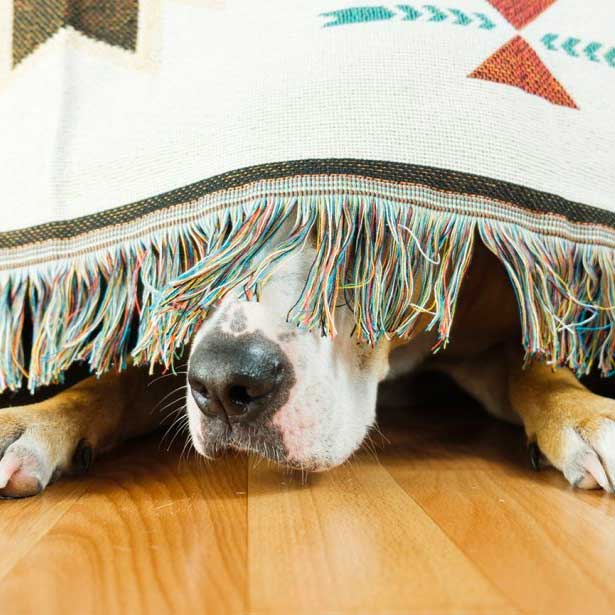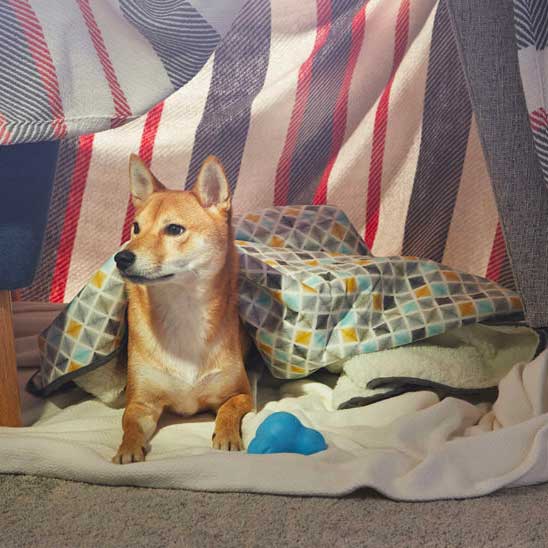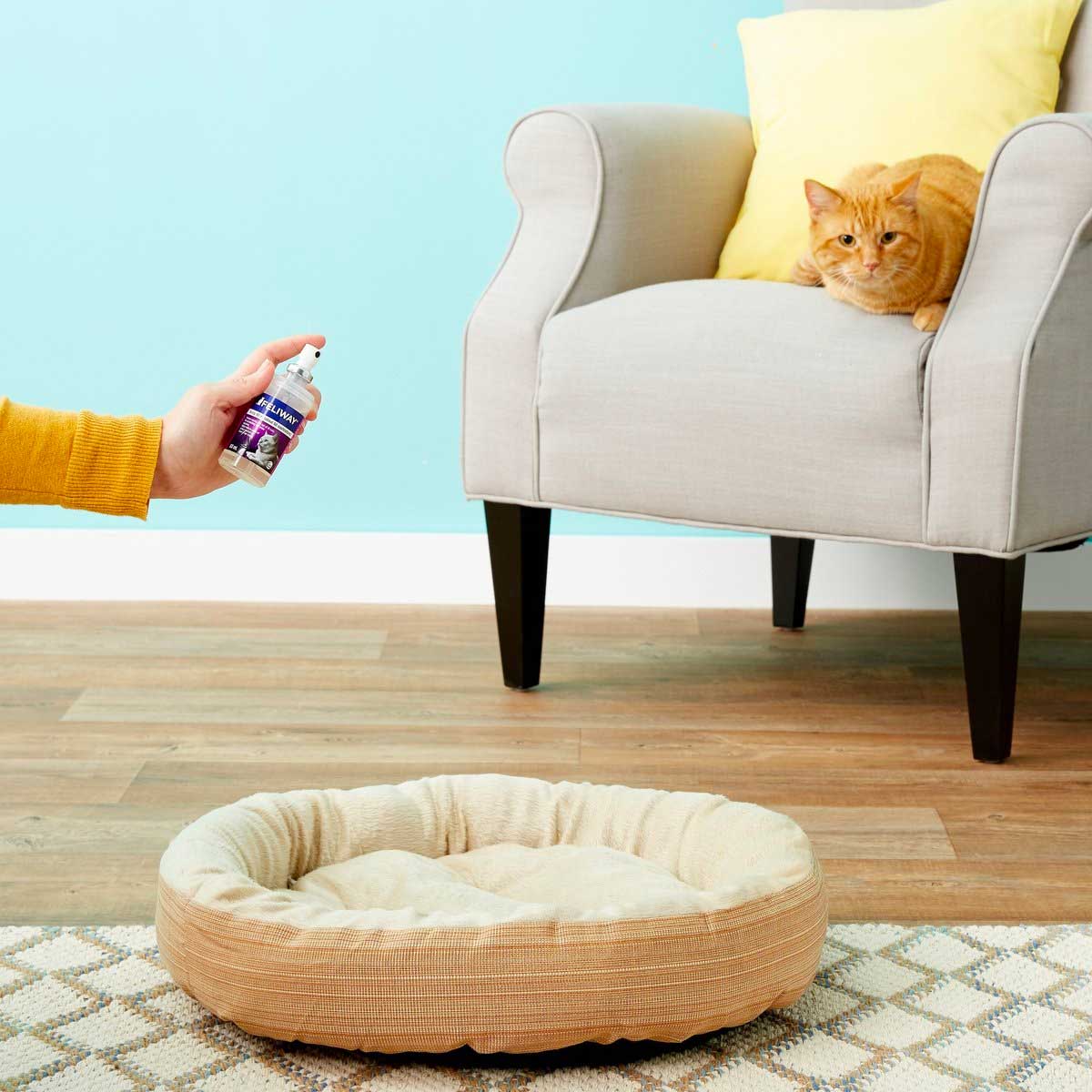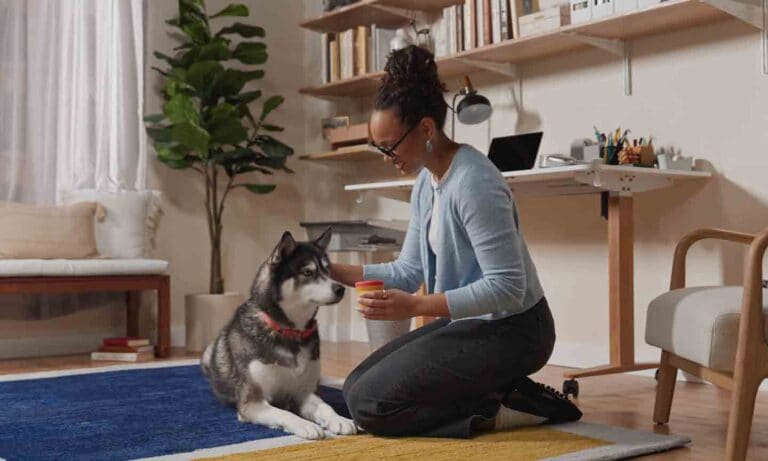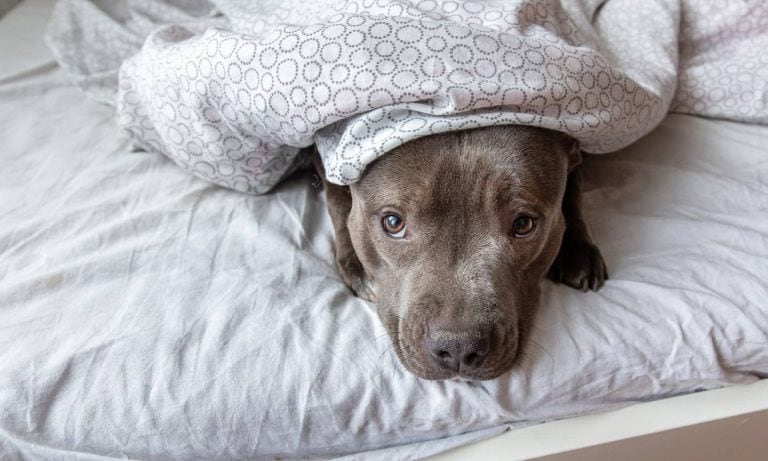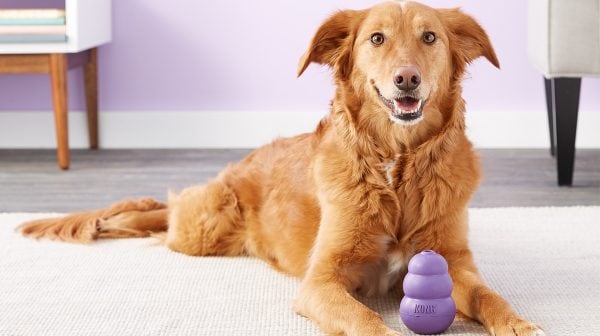When you see your pet scared and shaking, your instinct as a pet parent is to soothe and calm them. But when your hugs and cuddles aren't doing the trick, what's the next best solution? And how do you know what is the source of the stress and anxiety, so you can help prevent it in the future? That's where this calming guide comes in handy.
Ahead, we'll break down the various common causes of stress and anxiety—from separation anxiety to fears and phobias, like loud fireworks and spooky storms—and offer vet-recommended solutions to help calm your stressed pet.
Remember to consult with your veterinarian before trying any calming aid—they can help you rule out any medical causes for stress and anxiety before you pursue behavioral therapies.
In This Guide:
What Does Stress Look Like in Pets?
Keep in mind that the signs of stress in pets can be easily confused with other illnesses, so schedule an appointment with your veterinarian if you notice any of these symptoms.
What's Causing the Stress? And How Can I Help?
Click to jump to each section:
Fear
Fireworks and storms are loud, unexpected and feel like a threat to dogs and cats. But these noise phobias are not the only cause of fear and anxiety in pets. Trips to environments they're not used to (or straight-up don't like), like the vet or groomer, or traveling in the car, plane or train can also cause fear-related anxiety. Here are some ways to help.
How to Help
Click on the links to read about these solutions.
For storms...
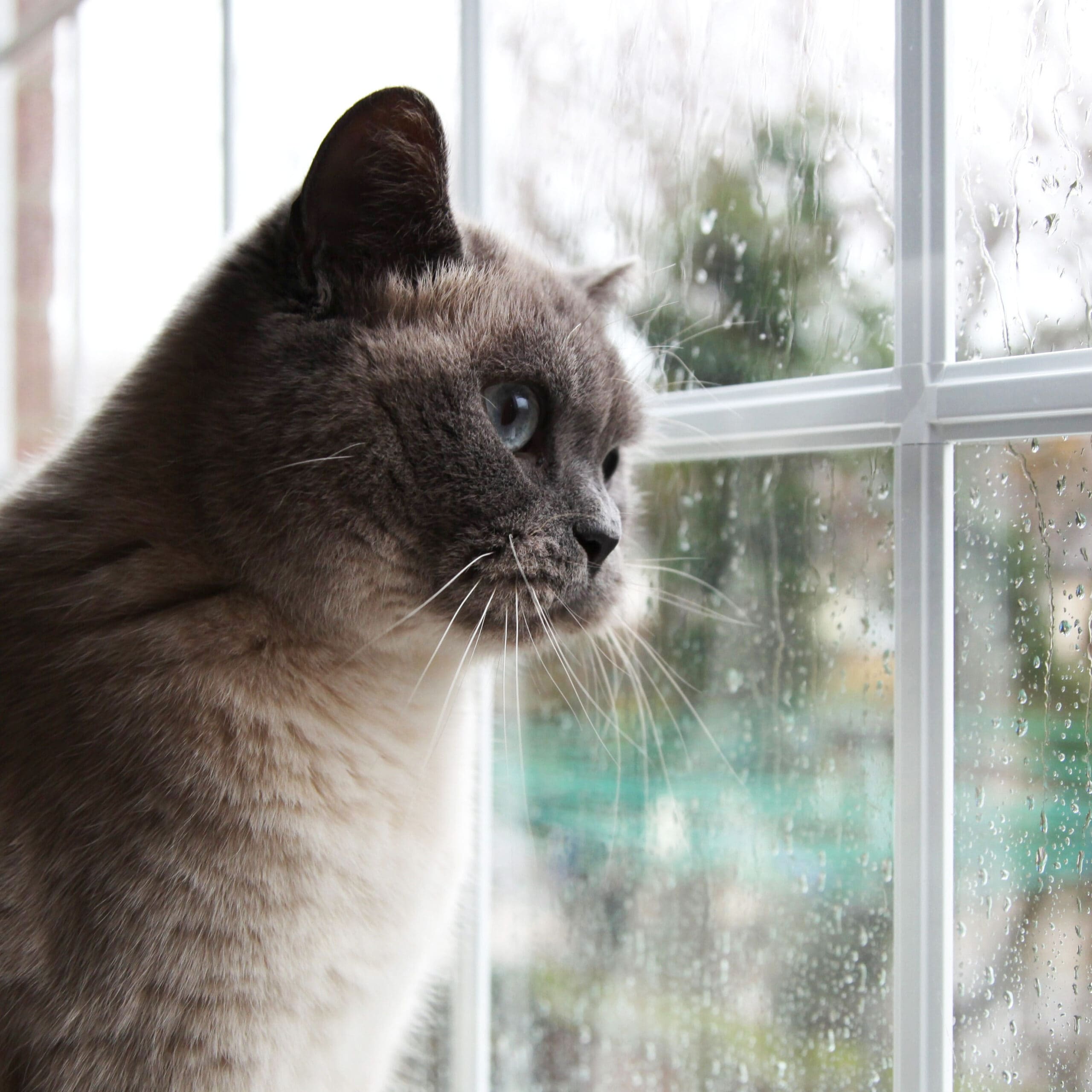
Hurricane Preparedness Plan: How to Comfort Your Pet and Keep Them Safe
6 Tornado Safety Tips, Including How to Keep Pets Calm
For trips to the vet...
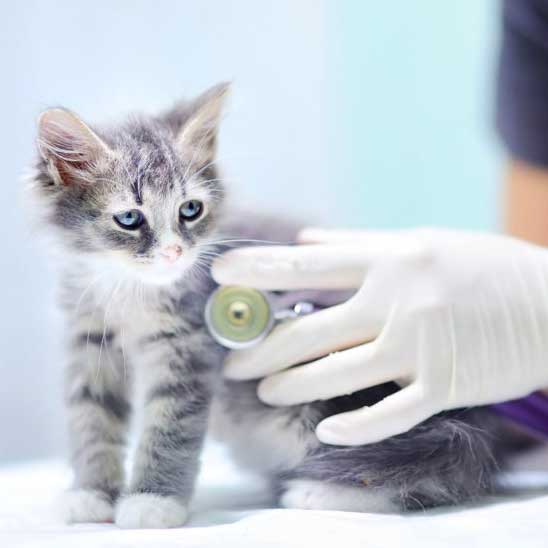
Vet-Approved Ways to Keep Your Dog Calm at the Vet
Feline-Approved Tips for a Stress-Free Visit to the Vet
Does Your Pet Hate the Vet? Try a Fear Free Veterinary Clinic
Separation Anxiety
In addition to being separated from their pet parent or family (due to changes in work schedules, for example), separation anxiety can also be triggered by limited enrichment at home (think playtime, exercise and bonding with the pet parent) and changes in your pet's routine. Here's how to help your pet manage separation anxiety-related stress.
How to Help
Click on the links to read about these solutions.
In dogs and puppies...
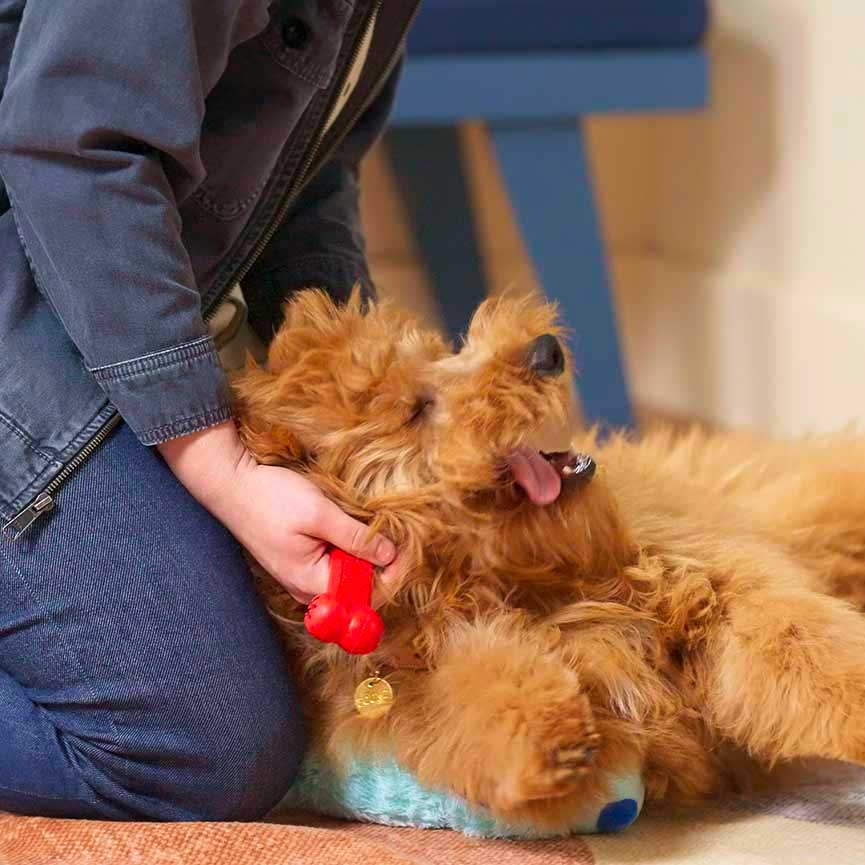
How to Manage Dog Separation Anxiety
How to Treat and Prevent Puppy Separation Anxiety
In cats and kittens...

How to Manage Cat Separation Anxiety
How to Help Your Scared Kitten Overcome Their Fear
Aging
As pets age, they can suffer from cognitive decline. In dogs, this is referred to as cognitive dysfunction syndrome (CDS), and in cats, feline cognitive dysfunction (FCD). This is similar to dementia in humans.
In pets with CDS or FCD, they may experience an increase in anxiety, irritability, stress and fear due to sensory, memory and awareness decline. Here's how you can help.
How to Help
Click on the links to read about these solutions.
For dogs...

Why Your Old Dog Won’t Sleep at Night—and What You Can Do About It
Is Your Older Dog Becoming Aggressive? How to Handle Behavior Changes
For cats...
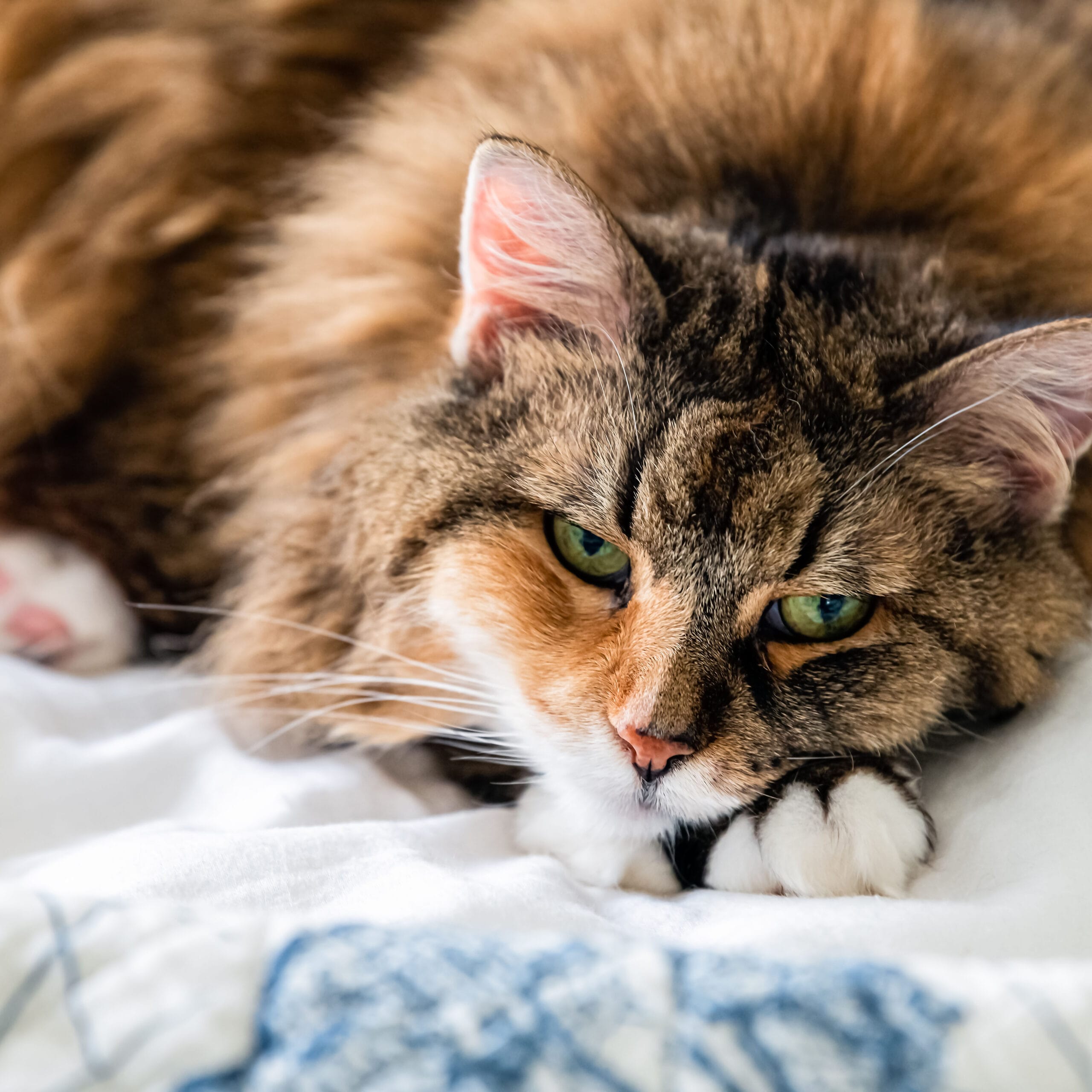
How to Help and Care for a Confused Senior Cat
How Much Should My Senior Cat Sleep? How to Improve Your Cat's Sleep Habits
Try These Other Solutions at Home
Click on the links to read about these solutions.
With homemade treats...

This Piña Colada Inspired Mutt Mocktail May Help Relieve Doggy Anxiety
With other calming aids...

The Best Cat Calming Aids to Help Soothe Your Feline Friend
The Best Dog Calming Aids to Ease Stressful Situations
With music...

De-Stress Your Pets With Relaxing Music for Cats and Dogs
Calming Products to Shop
Share:

